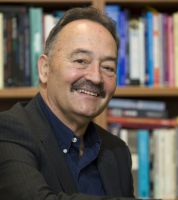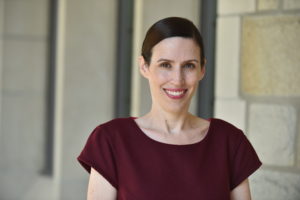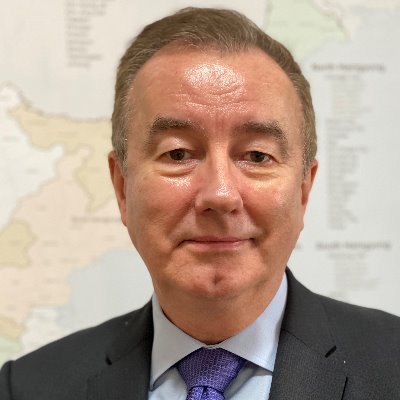GCES Symposium 2018
Get in touch
GCES Symposium 2018
Eighth Biannual Gulf Comparative Education Society (GCES) Symposium
The Al Qasimi Foundation hosted the Eighth Gulf Comparative Education Symposium from April 7th to 9th at the Hilton Garden Inn in Ras Al Khaimah, UAE. The theme of the 2018 Symposium was “Public, Private, and Philanthropy: Exploring the Impact of New Actors on Education in the GCC”, which was inspired by the increasing involvement of various public, private, and philanthropic actors in education in the Gulf region.
As the influence of these sectors becomes bolder and more visible, the need to explore their impact on education policy and practice within the region becomes more salient. This symposium provided multifaceted perspectives on the role of philanthropic, the participation of public and private actors in the GCC education systems, the scope of these actors’ involvement within and across educational institutions, and the dynamics of interactions with key stakeholders (e.g., policymakers, teachers, students, parents, etc.).

Keynotes and Guest Speakers
Professor Bob Lingard (University of Queensland)
Bob Lingard is a Professorial Research Fellow in the School of Education at The University of Queensland and is a Fellow of the Academy of Social Sciences in Australia and also of the UK Academy of Social Sciences. His most recent books include: Globalizing Educational Accountabilities (Routledge, 2016), National Testing in Schools: An Australian Assessment (Routledge, 2016), The Handbook of Global Education Policy (Wiley-Blackwell, 2016), Testing Regimes, Accountabilities and Educational Policy (Routledge, 2016), Politics, Policies and Pedagogies in Education (Routledge, 2014), and Globalizing Education Policy (Routledge, 2010), co-authored with Fazal Rizvi. As well as 25 books, Bob has published more than 200 refereed journal articles and book chapters dealing with the sociology of education and education policy studies. He is also editor of the journal, Discourse: Studies in the Cultural Politics of Education and of a Routledge, New York book series, Key Ideas in Education. He is currently reaching data infrastructures in schooling and commercialization and privatization of schooling.
Dr. Antoni Verger (Universitat Autònoma de Barcelona)
Antoni Verger is associate professor at the Department of Sociology of the Universitat Autònoma de Barcelona, and general deputy of the European Master program Education Policies for Global Development. A former post-doctoral fellow at the Amsterdam Institute for Social Science Research, Dr. Verger’s research analyses the relationship between global governance institutions and education policy. He has specialized in the study of public-private partnerships, quasi-markets and accountability policies in education. Currently, he coordinates the ERC funded project REFORMED - Reforming Schools Globally: A Multiscalar Analysis of Autonomy and Accountability Policies in the Education Sector. He is also one of the lead editors of the Journal of Education Policy and of the World Yearbook of Education.
Dr. Megan Tompkins-Stange (University of Michigan)
Megan Tompkins-Stange is an Assistant Professor at the Gerald R. Ford School of Public Policy, University of Michigan. Her expertise is on the influence of private and philanthropic actors within public education, and on the rise of market-based, managerial school reform, particularly the politics of charter schools. She is the author of the award-winning book, Policy Patrons: Philanthropy, Education Reform, and the Politics of Influence (Harvard Education Press, 2016) and co-author of the forthcoming book, Value Added: How Evaluating Teachers Became A Big Idea (under contract, University of Chicago Press). At the Ford School, she teaches courses on public and nonprofit management, qualitative research methods, values and ethics, and philanthropy in a democratic society, and is an affiliate of the Youth Policy Lab, Education Policy Initiative, and Poverty Solutions at the University of Michigan. She received her Ph.D. (in Organization Studies and Education Policy) from Stanford University, her Ed.M. from Harvard University, and her B.A.H. from Stanford University.
Alexandra Draxler (NORRAG)
Alexandra Draxler is an education specialist who spent most of her career at UNESCO where she worked on international collaboration on the recognition of higher education qualifications, HIV and AIDS prevention, and sector-wide planning. She was convener of several related interagency task forces. She was also Executive Secretary of the International Commission on Education for the Twenty-first Century, of which the President was Jacques Delors. Its report, Learning: the Treasure Within, was translated into more than thirty languages. In recent years she has worked for private and public entitities as a consultant and researcher. Her main interests and writings concern technologies in education, the impact of private actors on education, and public policies and planning. She is Senior Advisor to NORRAG and Associate Editor of the International Journal for Educational Development.
Frode Mauring (UN Development Programme)
Frode Mauring has been assigned as United Nations Resident Coordinator and UNDP Resident Representative a.i. to the United Arab Emirates (UAE) since 2015, also covering the Sultanate of Oman and the State of Qatar. He is a Norwegian national who has worked with the United Nations since 2002.
Prior to his appointment in the UAE, Mr. Mauring served as Special Representative of the UNDP Administrator in the Programme of Assistance to the Palestinian People, from 2011– 2015. He has also served as the UN Resident Coordinator and UNDP Resident Representative in the Russian Federation (2009-2011), Kosovo (2005-2009) and FYR Macedonia (2002-2005).
Before joining the United Nations, he worked for almost 20 years in the private sector in banking, consulting and his last position before joining the UN was as CEO of a large industrial company in Angola.
Mr. Mauring has a Master’s degree in International Management from the University of Denver as well as bachelor degrees in economics, business administration and social anthropology from Norwegian universities.

Program & Schedule
The conference is aimed to stimulate discussions on educational reform in the GCC. This program provides a platform for current and future research that explores achievements, challenges and pitfalls in education. As the education landscape continues to change, it is important to explore the way former education-related practices influence how education is practiced now and in the future.
Registration Open
Workshop: Using International Assessments
to Achieve Your Education Goals (Part 1)
Break
Workshop: Using International Assessments
to Achieve Your Education Goals (Part 2)
Lunch break
Welcome to Ras Al Khaimah
Introduction to GCES
Keynote 1: Globalization and Changing
Spatialities: Emergent Policy Fields and New
Policy Actors in Education
Featured Panel 1: Growth Beyond the Numbers: Higher Education in the GCC
Registration Open
Welcome and Announcements
Keynote 2: "Policy Patrons:" Private Philanthropic Foundations as Political Entrepreneurs in U.S. Public Education
Break
Featured Panel 2: Informing Education Policy and Transforming Systems through Evidence
Breakout Session 1.1: Education Research in Arabic (Arabic Session)
Breakout Session 1.2: Motivation, Attainment,
and Alternative Approaches to Learning
Breakout Session 1.3: Who Benefits?
Evaluating the Emergence of Private Actors in
Education
Lunch break
Keynote 3: Public-Private Partnerships in
Education: Critical Reflections from a Global
Governance Perspective
Break
Featured Panel 3: Philanthropy in Education in the GCC and Beyond: Challenges and Prospects
Breakout Session 2.1: Globalization in Philanthropy and Human Resources
Breakout Session 2.2: Helping Teachers Teach: The Effects of Teacher Training and Professional Development
Breakout Session 2.3: Innovating Curricula and Enhancing Learning
Welcome and Announcements
Featured Panel 4: The Internationalization of Education: Effects on Students, Educators, and Institutions
Break
Special Panel 1: NORRAG Special Edition Arabic Report Launch
Special Panel 2: Partnerships and Accountability for Sustainable Development Goal 4 in the Gulf States
Concluding Remarks and Group Photo
Lunch break
Pre-Conference Workshop "Collective Impact: Systems Theory and Shifting Paradigms through Grassroots Community Engagement"
Using International Assessments to Achieve Your Education Goals
National Foundation for Educational Research
Sponsored by Sheikh Saud bin Saqr Al Qasimi Foundation

Background
Education is recognized across the GCC as a moral imperative and a strategic priority to secure future prosperity and human flourishing. Policymakers have set ambitious targets to join the ranks of the best performing education systems in the world in order to deliver economic success and secure a place on the world stage for their citizens.
International Large Scale Assessments (ILSAs) play an important role in these developments. The GCC nations have demonstrated their commitment to measuring progress against international standards and to play an active role in the global education community by gathering and sharing data that can be used to inform future improvement.
Coordinated by the IEA and OECD, but delivered separately in each country, studies such as TIMSS, PIRLS and PISA focus on students’ achievement in reading, mathematics and science, but they are increasingly branching out into other outcome measures as well. These studies also gather a rich array of additional data on students, schools and the home environment.
Despite the high profile of the international studies, among the education and academic communities they remain an under-utilized resource. Headline findings such as countries’ international rankings, and the practices of the highest performing countries, receive significant but often superficial attention. The greatest value from the studies remains untapped: the opportunity to conduct in-depth analysis of particular education topics and to draw more sophisticated lessons from a wider range of countries.

Workshop outline
In this workshop, you will have the opportunity to learn more about International Large Scale Assessments, how they are designed and delivered, and what they have to say about education in the Gulf. Most importantly, the workshop will enable you to explore how you can use insights from these studies to support your role – as a policymaker, school administrator or academic.
Experts from the United Kingdom’s National Foundation for Educational Research (NFER) will provide an introduction to International Large Scale Assessments and summarize the most important findings for the GCC nations. They will then introduce the datasets and questionnaires and support you to identify your own topics of interest and to establish how you could use the international studies to provide new insights.
NFER is the leading provider of educational evidence, assessments, and program evaluation in the UK. It was established in 1946 and provides insights to inform policy and practice for governments and organizations around the world.

Presenters
The workshop will be delivered by Ben Durbin and Juliet Sizmur. Ben is Head of International Education at NFER and is responsible for leading NFER’s program of international assessment, research and evaluation. Juliet is a Senior Research Manager at NFER and has delivered several major international surveys, including PISA, PIRLS and TIMSS. She is currently the National Project Manager for PISA 2018 in all four nations of the UK and National Research Coordinator for PIRLS in Northern Ireland.







